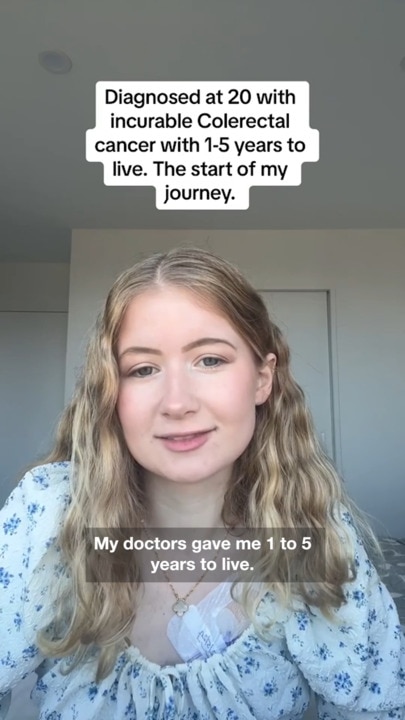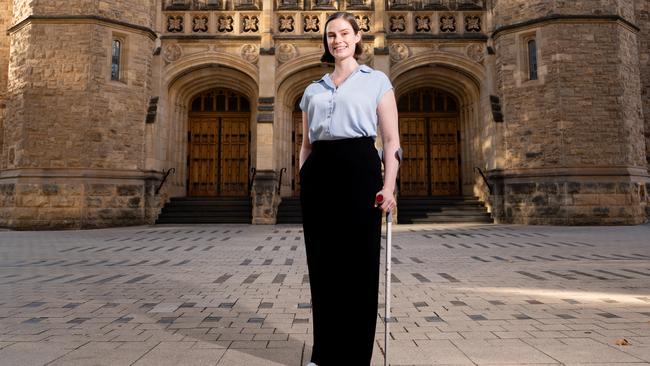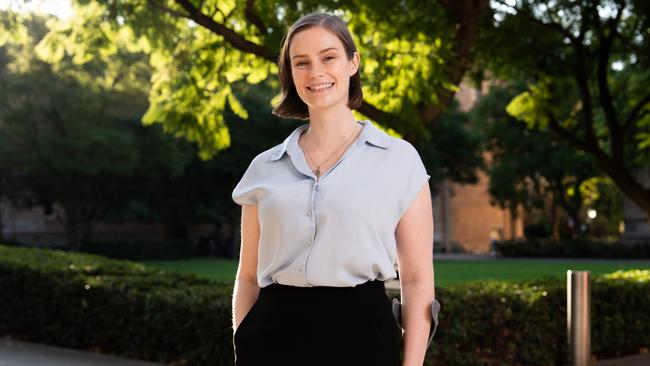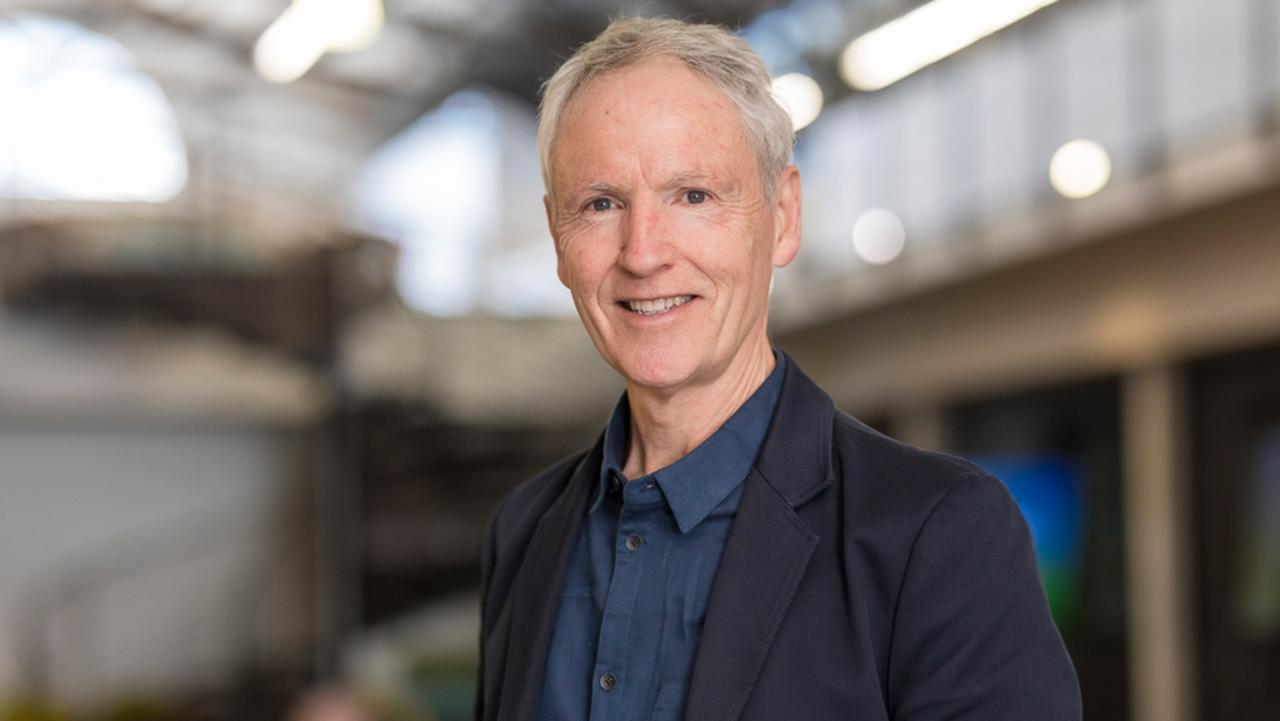Cancer left Shona Edwards with lifelong disabilities
After Shona Edwards was diagnosed with cancer in her 20s she developed disabilities. Now she’s advocating for research into the effects of cancer on youth.

SA News
Don't miss out on the headlines from SA News. Followed categories will be added to My News.
Shona Edwards was diagnosed with incurable cancer when she was only 23 years old.
At the time she didn’t know but the intensive treatment and type of cancer would later cause her to develop lifelong disabilities.
“Disability is the main outcome from my cancer experience which is hard,” the now 29-year-old Warradale women told The Advertiser
“Because of where the tumour is, it affects my mobility so I use a walking stick, sometimes I use a wheelchair and I have to carry around pressure cushions.
“My bladder and bowel function are affected and I get numbness … pain is a big one so I have to manage with some medication and other bits which is how I live my life.”
Because of her experience she is advocating alongside charity Canteen for federal funding for research into the long-term health impact of cancer on youth.

In March 2018, Ms Edwards was diagnosed with meningioma after an MRI found a nine by eight centimetre tumour wrapped around the base of her spine.
“I spent a month weeping, just crying, I was in shock,” she said.
“I was trying to distract myself but it takes up everything … there’s so many unknowns.”
Two months later, Ms Edwards underwent a seven hour surgery in an attempt to remove the tumour which was unsuccessful before she flew to Prague, Czech Republic in October for 10 weeks of proton beam radiation.
The treatment stopped the tumour from growing, however Ms Edwards cancer is incurable.
“I don’t really have treatment options … so I’m on these registries now,” she said.
Ms Edwards, who is a Masters student at Adelaide University, said while her future holds uncertainty she said she finds it holds more certainty than others have.
“I know more about what my life is going to look like and I know more about how it’s probably going to end,” she said.
“You have to live with the uncertainty and live the best life you can.
“I probably wouldn’t have lived that intensely before my diagnosis.”

Peter Orchard, the CEO of Canteen said the challenges of cancer don’t finish when a young person leaves the hospital.
“We need to understand the physical, emotional and financial long-term impacts that Australia’s 30,000 youth cancer survivors experience,” he said.
It’s why Canteen is calling on the federal government to allocate $11.9m to pioneer a project to study the long-term health impacts of cancer on youth.
“If we understand the long-term impact of cancer on young people, then we can intervene early through better prevention, screening and tailored support services so that young people don’t just live beyond their cancer diagnosis, but live well,” he said.

He said young cancer survivors can be left physically and emotionally scarred from their experiences.
“We support young people experiencing depression or PTSD, who struggle to find work and who now also face a higher risk of developing other health conditions like heart disease than people who haven’t had cancer,” he said.
“We want to ensure that young people surviving cancer aren’t left traumatised and dealing with other health or financial problems as a result of their treatment.
“If we can secure federal government funding, this Australia-first research will enable us to identify where to focus future health investment to improve young cancer survivors’ lives and reduce the wider impact on our economy.”
More Coverage
Originally published as Cancer left Shona Edwards with lifelong disabilities






